Pills, Potions & Poisons offers high schoolers a look into the world of pharmacy
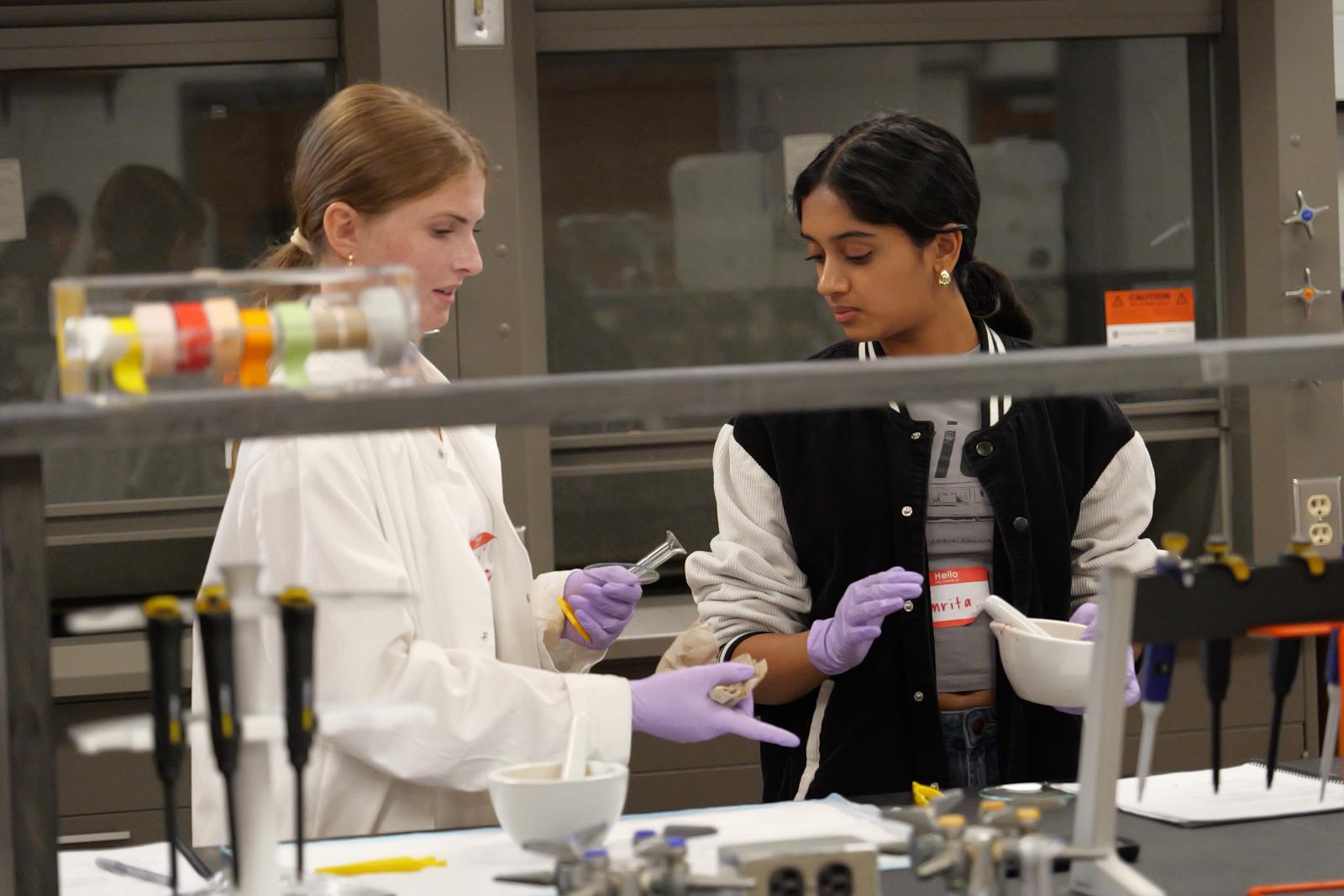
During the summer term, the activity in Parks Hall and the Riffe Building lowers to a whisper. With most students on rotation or relaxing at home, the upbeat chatter is replaced by faculty and staff quietly preparing for the next academic year.
That silence was joyfully interrupted the week of July 8 by the Pills, Potions and Poisons (PPP) summer program. PPP claimed the Riffe Classroom as a homebase and hosted 49 high school campers for a week of health science learning.
Created in 2008 by Senior Associate Dean for Academic Affairs and Educational Innovation Nicole Kwiek, PhD, the PPP program gives high school students the opportunity to explore pharmacy in a college setting.
Today, the camp is coordinated by Senior Lecturer and Faculty Director of Pre-College Programs Katie Summers, PhD. Dr. Summers’ involvement with the program began in 2010, when she first served as an undergraduate teaching assistant.
“Pills, Potions and Poisons has held a special place in my heart for a long time,” Dr. Summers said. “I really enjoy getting to work with high school students and experiencing the energy that everyone brings to this learning space.”
For five days, the program’s staff led their students through introductory pharmacy lectures, experiments and tours around college and campus facilities. Programming plans and execution were co-directed by Senior Lecturer Dan Michel, PhD, and supported by Academic Teaching Fellows Colin Louderback, PharmD ’23, BSPS ’20; Megan Kroh, PharmD; Brittney Mize, PhD ’23; and Hannah Culyer, PharmD.
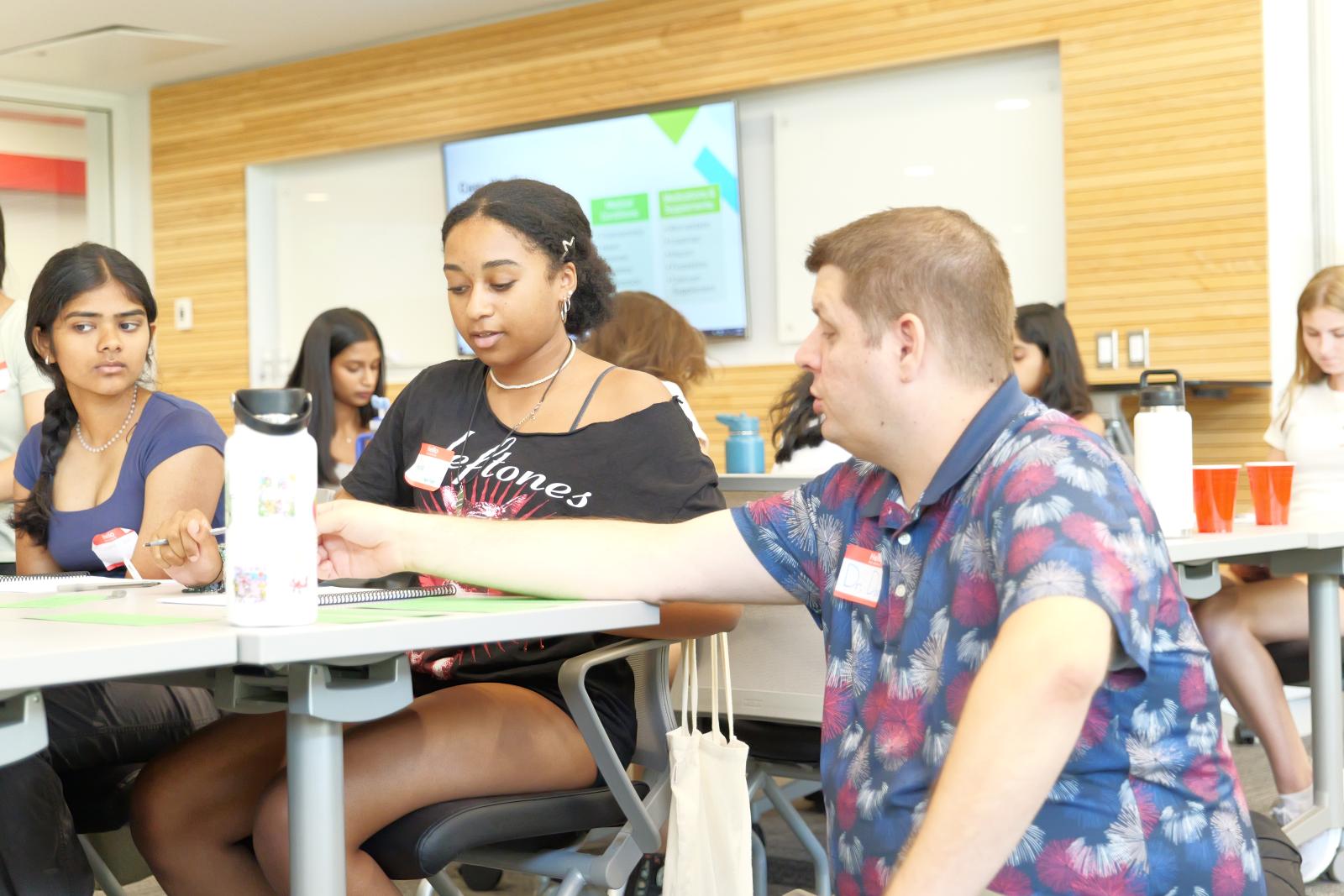
Current students of the college also play a critical role in the program’s success. PharmD, undergraduate and graduate students frequently return to campus as TAs each year of the program. This summer, activities were led by TAs Alice Tan (P4), Haddon Foley (P2), Olivia Wallace (P2), Mark Wascovich (BSPS ’24) and Austin Peacock (BSPS 4th year).
This year, three out of five TA’s were previous attendees of Pills, Potions and Poisons, and they expect that this year’s campers will eventually take over their responsibilities.
“Each year, we hold a paper plate award ceremony at the end of the week,” Foley explained. “Way back in 2019, I received the Future PPP TA Award, so many of us come full circle from camper to student over the years.”
Though the program centers around pharmacy's role in patient care and drug research, staff do their best to illustrate the ways that medication fits into the big picture of health care and patient well-being.
“While we focus on pharmaceutical sciences and drugs at the camp, we make sure to still show how those topics connect to the rest of health care,” Dr. Summers said. “Plenty of students come through interested in dentistry, nursing, you name it; but they always leave with a newfound appreciation for how medications work.”
To support this inclusive career philosophy, Dr, Summers and her staff have incorporated interprofessional exercises into the week’s activities. This year, students were presented with complex patient problems in small groups, then assigned roles on a health care team to tackle the patient’s unique needs.
In one case, students were asked to evaluate the greatest health needs of an 80-year-old patient with comorbidities, a long list of medications, limited family support and a recent hip fracture. They designed a medical response to support the patient’s recovery and medication adherence.
“Students that attend PPP have big plans, and we want to show them how many ways there are to achieve their goals.”
Other clinical activities included simulated patient consultations, verifying prescriptions and compounding medications in the college’s integrated pharmacy practice lab
To introduce PPP participants to research, students designed their own experiments and carried them out in the undergraduate lab space of Parks Hall. Groups were then led through active lab spaces by Fuchs Lab researchers Katie Starr and Jeff Lockwood and Assistant Professor Chris Coss, PhD.
While touring the college’s drug research facilities, students learned about the researchers’ backgrounds and received a crash course on the drug development process.
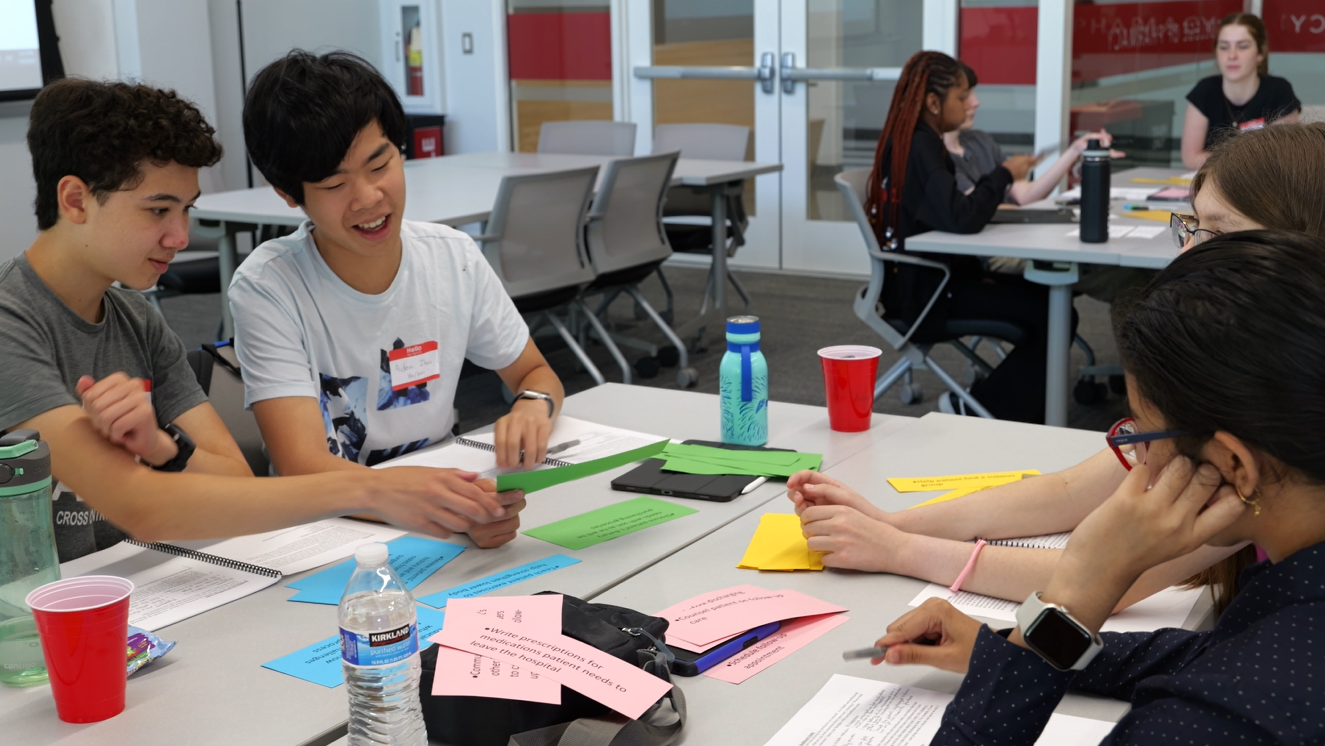
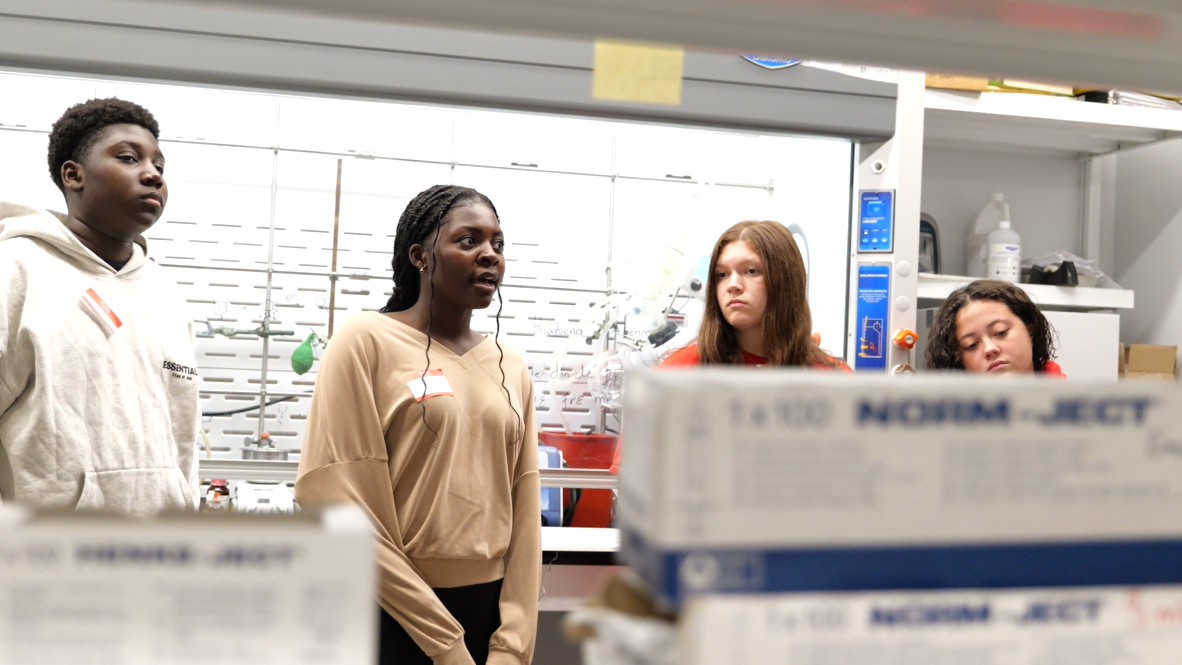
Ever the fantastic ambassador for the college, Dr. Summers’ passion and devotion to the project are paying off. If you ask around in any of the college’s courses, you’re sure to find more PPP alumni. Since the program’s inception, 20% of attendees have become degree-seeking students in an Ohio State College of Pharmacy program.
“I came into the program not knowing anyone,” Wallace recalled. “Today, I have classes with a bunch of my friends that I made way back in my days as a PPP kid.”
To support this impressive retention rate, Dr. Summers and the rest of the PPP staff incorporated visits from the College of Pharmacy Academic and Career Services Office into the week’s programming.
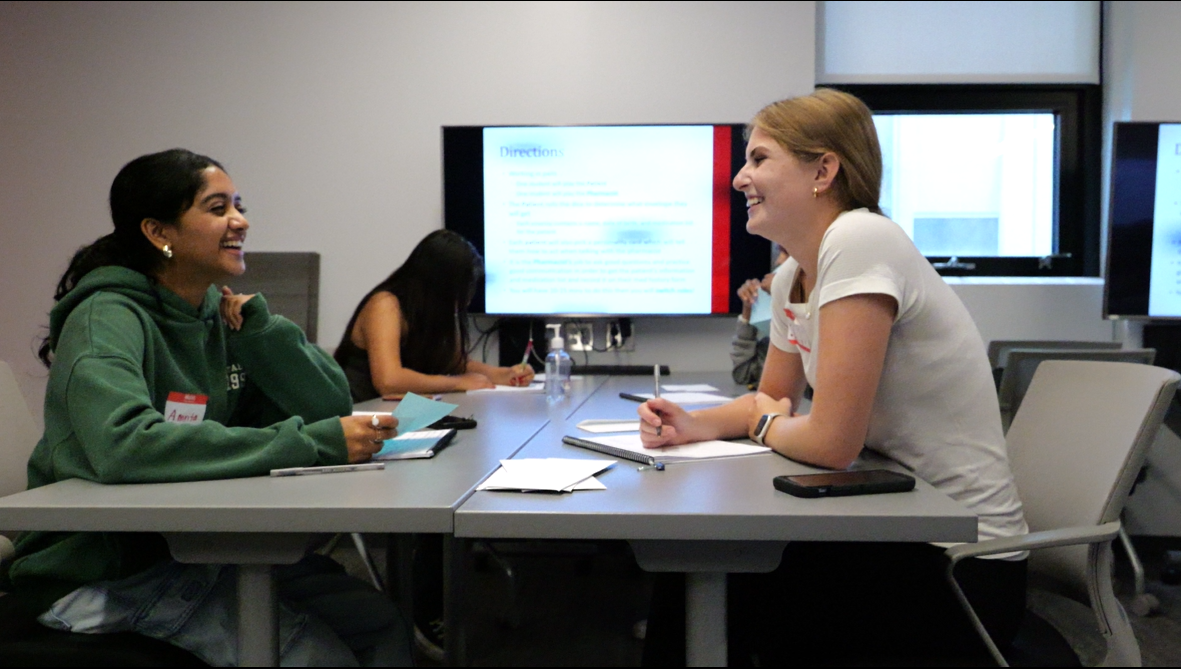
“We’re showing high schoolers the ways that a pharmacy degree can set them up for a future in pharmacy or connect them to a completely different health science career,” Dr. Summers said.
As the new lead for pre-college programming, Dr. Summers has big plans. With her experience and resources developed through years of leading PPP, extending elements of the program’s curriculum to new learning opportunities and student demographics is a goal within reach.
“As a teacher, I’ve come to understand that if you can offer students access and help them see what being a pharmacist or researcher entails, they’re more likely to see themselves in that role,” she said. “Students that attend PPP have big plans, and we want to show them how many ways there are to achieve their goals.”